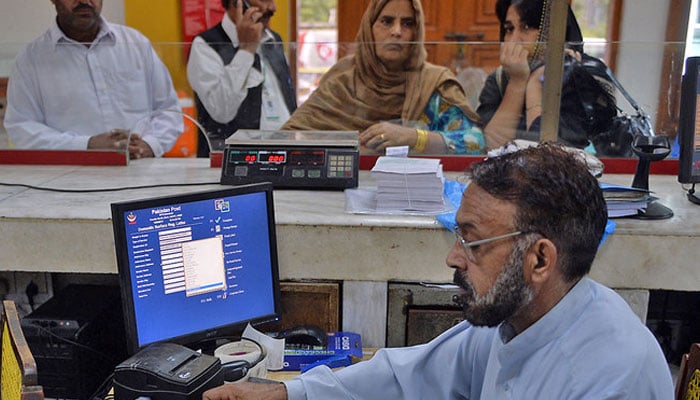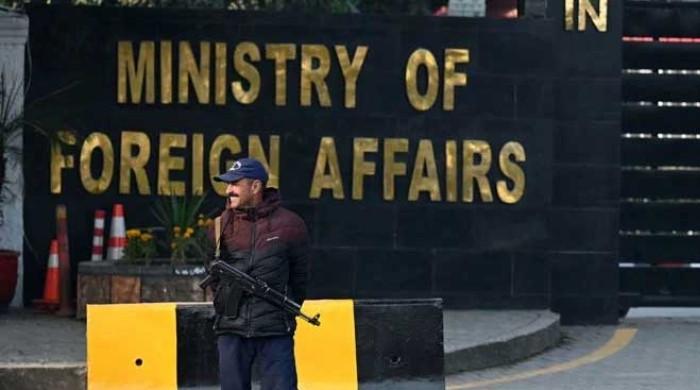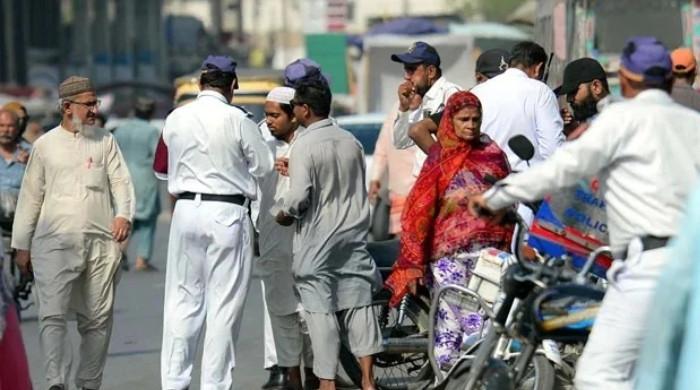Proposal to raise govt employees' retirement age dropped
Sources say possibility of increasing age limit to 62 or 63 for civilian employees, others had diminished so far
June 26, 2024

ISLAMABAD: The proposal for increasing the age limit of government employees has fizzled out mainly because of stiff opposition from all relevant and powerful quarters, it is learnt.
For the time being, this proposal for jacking up the age limit of all public sector employees, including civil and military workforce as well as for judiciary, is not going to be implemented and it would be argued that some more spadework needed to be done before finalising any such proposal.
However, Islamabad is all set to abolish ministries of devolved subjects in a phased manner and the proposal is under consideration to convince the provinces to share the burden of social protection initiatives such as the Benazir Income Support Programme (BISP).
It is yet to see how the government tackles the budgetary allocation of the Higher Education Commission (HEC) in the rationalisation of expenditure exercise. The government has constituted a high-powered committee under Minister for Finance Mohammad Aurangzeb to rationalise unbridled government expenditures, and it was expected that the committee would finalise its findings till the announcement of the budget. Still, nothing has come out of it so far. The committee has held several deliberations to finalise its recommendations by end of July or first week of August. The government may announce its findings around August 14.
Top official sources said that the possibility of increasing the age limit from the retirement age of 60 years to 62 or 63 for civilian employees and others as well had diminished so far, but other proposals on pension reforms were still intact such as provisions of payment of pensions for generation might be abolished.
On May 7, 2024, three federal ministers, law, finance and information & broadcasting, shared a plan to finalise the pension package for implementing it across the board including jacking up the age limit for all public servants such as the armed forces, judiciary, and civilian employees.
When asked about the increasing age limit for the chief of army staff and chief justice of Pakistan in the aftermath of implementing pension reforms, Law Minister Azam Nazeer Tarar stated that the pension reforms would be implemented across the board. At the stage of implementation, he said that the relevant acts such as the Army Act and others for dealing with judiciary or others as well as constitutional amendments would be introduced and passed to implement it for all segments of the society.
Now in his wind-up speech, the finance minister announced slashing of the development budget by cutting down Rs250 billion without changing the overall size of the Public Sector Development Programme (PSDP) of Rs1,500 billion.
The National Economic Council (NEC) approved the PSDP size of Rs1,500 billion including Rs1,400 billion from the budgetary resources and Rs100 billion through Public Private Partnership (PPP). Now the government has decreased the size of PSDP from budgetary resources from Rs1,400 billion to Rs1,150 billion, slashing it by Rs250 billion but the shape of development projects executed in the shape of PPP increased from Rs100 billion to Rs350 billion.
The question arises how many development schemes through the PPP model had so far been executed practically since the inception of the PPP Authority? The answer is crystal clear that P3 Authority so far miserably failed to make any substantial difference.
With the creation of a cushion of Rs250 billion, it is yet to see how the government fills it by seeking relaxation on the taxation front.
Top official sources said that the government has sought permission from the International Monetary Fund (IMF) for tabling changes in the proposed finance bill for 2024-25.
The government has proposed changes for restoring a fixed tax regime for exporters as the government had proposed a normal tax regime for them in the budget. The government has hinted at providing relief on hybrid vehicles, GST on stationary, charitable outfits, and some other items. The tax increase for professors/researchers might be withdrawn. This scribe sent out a question to Secretary Finance Imdad Ullah Bosal on Monday but got no reply till the filing of this report on Tuesday night.
Originally published in The News









